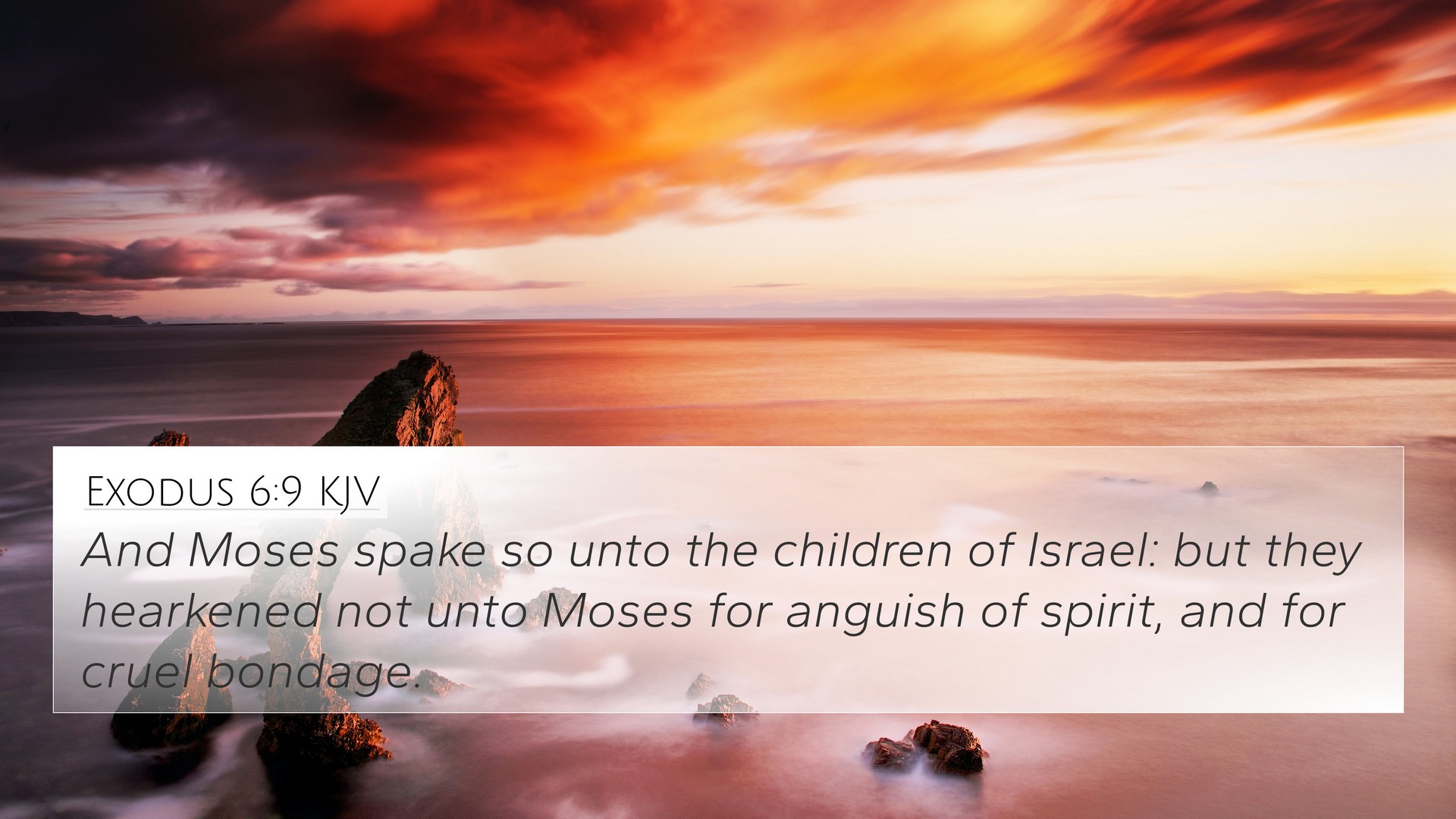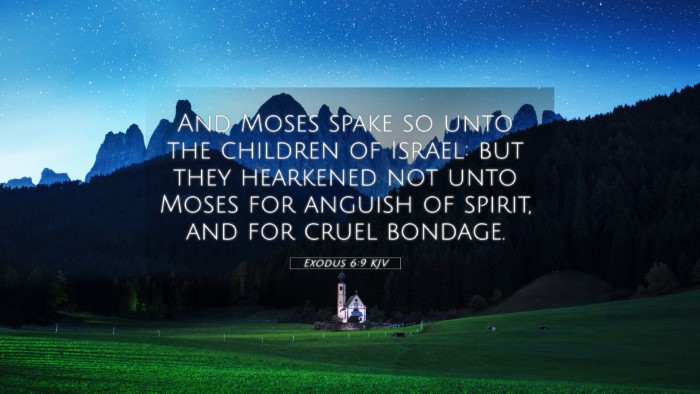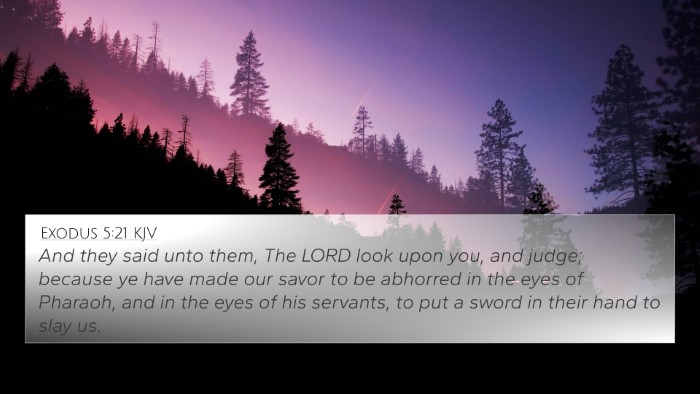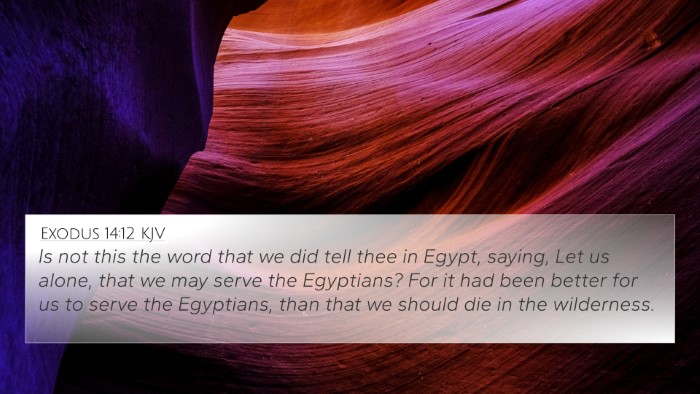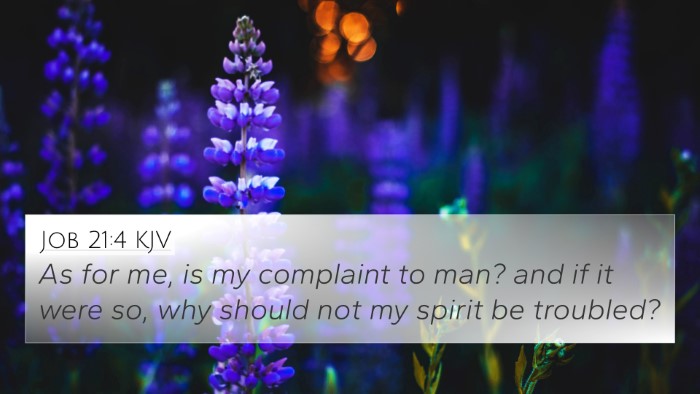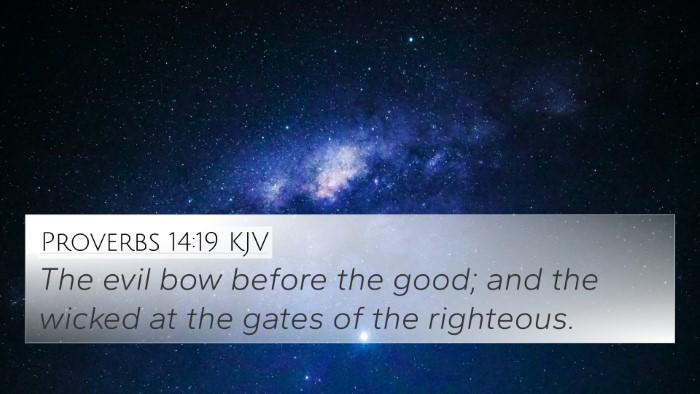Understanding Exodus 6:9
Exodus 6:9 states: "And Moses spake so unto the children of Israel: but they hearkened not unto Moses for anguish of spirit, and for cruel bondage." This verse reflects a critical moment in the narrative of the Israelites' liberation from Egypt, showcasing their despair due to harsh conditions and their inability to hear the hope Moses brings.
The meaning of this verse delves into themes of despair, hope, and divine promise, and provides several insights through public domain commentaries.
Summary of Commentary Insights
-
Matthew Henry's Commentary:
Henry emphasizes the spiritual condition of the Israelites, noting that their anguish stems from both oppression and a lack of faith. Despite Moses delivering God's promise of deliverance, the heavy burden of their slavery clouds their understanding, a situation that reflects the struggle between human agony and divine assurance.
-
Albert Barnes' Notes:
Barnes points out that the people's unwillingness to listen signifies a deep-seated hopelessness. Their cruel bondage has made them resistant to the message of liberation, indicating a broader theme of human struggle against the weight of oppression and the importance of recognizing divine intervention.
-
Adam Clarke's Commentary:
Clarke speaks to the psychological effects of oppression, noting how prolonged suffering can numb a people's ability to respond positively to hope. He highlights that Moses' efforts exemplify the challenge of delivering hope to a people entrenched in despair, and how vital it is for leaders to remain steadfast in such circumstances.
Key Themes in Exodus 6:9
- Anguish and Bondage: The anguish of the Israelites is manifested in their inability to hear good news, a powerful metaphor for those trapped in difficult situations.
- Divine Deliverance: The verse encapsulates the tension between current suffering and the promise of God’s deliverance, emphasizing faith in the unseen.
- The Role of Leadership: Moses' role highlights the importance of steadfast leadership in times of distress and the challenge of encouraging those who feel hopeless.
- Spiritual Awareness: This passage prompts readers to consider the spiritual toll of suffering and the necessity of remaining open to God's voice amidst trials.
Bible Cross References
Exodus 6:9 relates to several passages throughout the Bible. Here are some significant cross-references:
- Psalms 42:5: "Why art thou cast down, O my soul? And why art thou disquieted within me?" - Reflects similar anguish and despair.
- Isaiah 53:4: "Surely he hath borne our griefs and carried our sorrows..." - Connects to the theme of suffering and eventual redemption.
- Romans 8:18: "For I reckon that the sufferings of this present time are not worthy to be compared with the glory which shall be revealed in us." - Highlights the hope amidst current suffering.
- Matthew 11:28-30: "Come unto me, all ye that labour and are heavy laden, and I will give you rest." - Resonates with the promise of relief and hope.
- Revelation 21:4: "And God shall wipe away all tears from their eyes..." - Speaks of a future freedom from suffering aligned with God's promises.
- 2 Corinthians 1:4: "Who comforteth us in all our tribulation..." - Assures believers of divine comfort during times of distress.
- Hebrews 11:6: "But without faith it is impossible to please him..." - Emphasizes the need for faith in God's promises as highlighted in the plight of the Israelites.
Exploration of Themes
This exploration invites further examination of the connections between the themes in Exodus 6:9 and other Biblical texts. It is vital to consider how these scriptures interact and elucidate the broader themes of bondage, discouragement, and divine hope through cross-referencing. Engaging with the connections between Bible verses enriches the understanding of individual scriptures and highlights the thematic Bible verse connections that pervade the text.
Tools for Deepening Understanding
To expand one’s study of Exodus 6:9 and its intertextual dialogue, several tools for Bible cross-referencing can be beneficial:
- Utilize a Bible concordance to identify keywords and themes related to hope and despair.
- Take advantage of a Bible cross-reference guide to locate interconnected verses effectively.
- Engage in cross-reference Bible study to explore how similar themes are presented across different scriptures.
Conclusion
Exodus 6:9 serves as a poignant reminder of the struggles faced by the Israelites under bondage and their response to the promise of God. By studying this verse alongside its cross-references, believers can gain enriching insights into the nature of hope, suffering, and divine deliverance. This understanding encourages a deeper appreciation of the inter-Biblical dialogue that exists and the comfort found in God’s promises throughout scripture.
